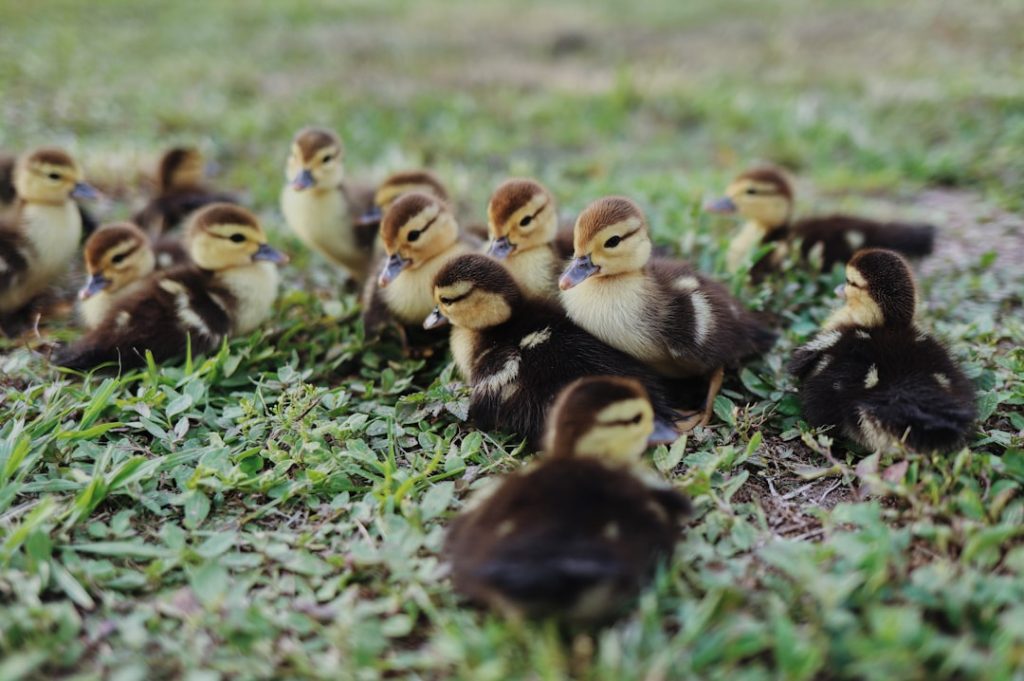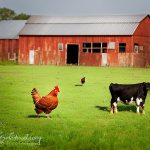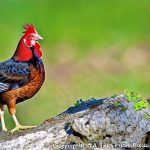In Virginia, chicken ownership regulations vary by locality. While chickens are generally permitted in residential areas, specific guidelines and restrictions apply. These rules aim to protect the health and safety of both chickens and the community.
Prospective chicken owners should familiarize themselves with local regulations before acquiring chickens. A crucial aspect of Virginia’s chicken ownership regulations is the requirement for proper housing and care. Owners must provide a secure coop and run to protect chickens from predators and prevent them from entering neighboring properties.
Additionally, maintaining a clean and sanitary environment is mandatory to prevent disease spread. Compliance with these regulations is essential for anyone considering chicken ownership in Virginia.
Table of Contents
- 1 Determining the maximum number of chickens allowed on residential properties
- 2 Guidelines for keeping chickens in urban and rural areas
- 3 Obtaining the necessary permits and licenses for owning chickens
- 4 Zoning and land use restrictions for keeping chickens in Virginia
- 5 Best practices for responsible chicken ownership in Virginia
- 6 Resources for further information on chicken ownership regulations in Virginia
- 7 FAQs
- 7.1 What is the maximum number of chickens allowed to be kept in Virginia?
- 7.2 Do I need a permit to keep chickens in Virginia?
- 7.3 Are there any restrictions on keeping chickens in residential areas in Virginia?
- 7.4 What are the regulations for chicken coops in Virginia?
- 7.5 Are there any specific health or safety regulations for keeping chickens in Virginia?
Key Takeaways
- Virginia’s regulations on chicken ownership vary by locality and may include restrictions on the number of chickens allowed, coop requirements, and setback distances.
- The maximum number of chickens allowed on residential properties in Virginia is typically determined by the property’s acreage and zoning regulations.
- Guidelines for keeping chickens in urban areas may include noise and odor control, while rural areas may have additional considerations such as predator protection and waste management.
- Obtaining the necessary permits and licenses for owning chickens in Virginia may involve submitting a site plan, paying a fee, and meeting specific requirements for coop construction and maintenance.
- Zoning and land use restrictions for keeping chickens in Virginia may include setback requirements, restrictions on roosters, and limitations on coop size and placement.
- Best practices for responsible chicken ownership in Virginia include providing proper housing, nutrition, and veterinary care, as well as being considerate of neighbors and local regulations.
- Resources for further information on chicken ownership regulations in Virginia include local government websites, agricultural extension offices, and poultry associations.
Determining the maximum number of chickens allowed on residential properties
Varied Regulations Across the State
The maximum number of chickens allowed on residential properties in Virginia varies depending on the local government. In some areas, there may be specific limits on the number of chickens allowed, while in others, there may be no set limit.
Adhering to Local Regulations
In areas where there are specific limits on the number of chickens allowed, it is crucial for owners to adhere to these regulations to avoid any potential fines or penalties.
Responsible Chicken Ownership
Even in areas where there are no set limits, it is vital for owners to consider the space and resources available on their property to ensure that they can provide proper care for the chickens. Understanding the maximum number of chickens allowed on residential properties is an important aspect of responsible chicken ownership in Virginia.
Guidelines for keeping chickens in urban and rural areas
The guidelines for keeping chickens in urban and rural areas in Virginia may differ based on the specific regulations set by local governments. In urban areas, there may be stricter regulations in place to address concerns about noise, odor, and space limitations. In rural areas, there may be more flexibility in terms of the number of chickens allowed and the space required for housing them.
In both urban and rural areas, it is important for chicken owners to consider the impact of their chickens on the surrounding community. This includes addressing concerns about noise, odor, and waste management. Additionally, owners should ensure that their chickens are kept in a secure and sanitary environment to prevent any potential health or safety issues.
Understanding the guidelines for keeping chickens in urban and rural areas is essential for anyone considering owning chickens in Virginia.
Obtaining the necessary permits and licenses for owning chickens
In Virginia, obtaining the necessary permits and licenses for owning chickens may vary depending on the local government. Some areas may require owners to obtain a permit or license before bringing chickens onto their property, while others may not have any specific requirements. It is important for potential chicken owners to research the regulations in their specific area to determine what permits or licenses may be required.
For areas that do require permits or licenses, it is important for owners to follow the necessary steps to obtain these documents before bringing chickens onto their property. This may include submitting an application, paying a fee, and meeting certain requirements related to housing and care for the chickens. Understanding the process for obtaining the necessary permits and licenses for owning chickens is an important aspect of responsible chicken ownership in Virginia.
Zoning and land use restrictions for keeping chickens in Virginia
Zoning and land use restrictions for keeping chickens in Virginia may vary depending on the specific regulations set by local governments. These restrictions are in place to address concerns about noise, odor, and space limitations, as well as to ensure that chickens are kept in a safe and sanitary environment. It is important for potential chicken owners to research the regulations in their specific area to determine what zoning and land use restrictions may apply.
In areas with specific zoning and land use restrictions, it is important for owners to adhere to these regulations to avoid any potential fines or penalties. This may include ensuring that the property meets certain size requirements, setbacks from property lines, and other zoning considerations. Understanding the zoning and land use restrictions for keeping chickens is an important aspect of responsible chicken ownership in Virginia.
Best practices for responsible chicken ownership in Virginia

Providing a Safe and Healthy Environment
This includes ensuring that the chickens are kept in a secure coop and run to protect them from predators and to prevent them from wandering onto neighboring properties. Additionally, owners should keep their chickens in a clean and sanitary environment to prevent any potential health or safety issues.
Being a Good Neighbor
Responsible chicken ownership also involves being a good neighbor and addressing any concerns that may arise from the surrounding community. This may include taking steps to minimize noise and odor, properly managing waste, and being proactive in addressing any potential issues that may arise.
Best Practices for Responsible Chicken Ownership
By following these best practices, chicken owners can ensure that they are being responsible members of their community while enjoying the benefits of owning chickens in Virginia.
Resources for further information on chicken ownership regulations in Virginia
For further information on chicken ownership regulations in Virginia, potential chicken owners can reach out to their local government offices, such as the zoning department or animal control agency. These offices can provide specific information about the regulations that apply to their area, as well as any permits or licenses that may be required. Additionally, there are a variety of online resources available that provide information on chicken ownership regulations in Virginia, including websites from local government agencies and organizations dedicated to promoting responsible chicken ownership.
In addition to reaching out to local government offices and utilizing online resources, potential chicken owners can also connect with other chicken owners in their area to learn about their experiences and any specific regulations that may apply. This can provide valuable insight into what it takes to be a responsible chicken owner in Virginia and help potential owners navigate the process of bringing chickens onto their property. By utilizing these resources, potential chicken owners can ensure that they have all the information they need to be responsible chicken owners in Virginia.
If you’re interested in learning more about keeping chickens, you may want to check out this article on chicken coop options in Chester, SC. It provides valuable information on the different types of coops available and how to choose the best one for your chickens.
FAQs
What is the maximum number of chickens allowed to be kept in Virginia?
In Virginia, the maximum number of chickens allowed to be kept varies by locality. Each county or city may have its own regulations regarding the number of chickens that can be kept on a property.
Do I need a permit to keep chickens in Virginia?
Some localities in Virginia may require a permit to keep chickens. It is important to check with the local zoning or animal control office to determine if a permit is needed.
Are there any restrictions on keeping chickens in residential areas in Virginia?
Many residential areas in Virginia have restrictions on keeping chickens, such as limits on the number of chickens allowed, coop requirements, and distance requirements from neighboring properties. It is important to check with the local zoning or animal control office for specific restrictions in a particular area.
What are the regulations for chicken coops in Virginia?
Regulations for chicken coops in Virginia may vary by locality. Some common regulations include requirements for coop size, construction materials, and distance from property lines or neighboring residences. It is important to check with the local zoning or animal control office for specific coop regulations.
Are there any specific health or safety regulations for keeping chickens in Virginia?
In Virginia, there may be specific health and safety regulations for keeping chickens, such as requirements for vaccinations, waste disposal, and predator protection. It is important to check with the local animal control office or agricultural extension office for specific regulations.
Meet Walter, the feathered-friend fanatic of Florida! Nestled in the sunshine state, Walter struts through life with his feathered companions, clucking his way to happiness. With a coop that’s fancier than a five-star hotel, he’s the Don Juan of the chicken world. When he’s not teaching his hens to do the cha-cha, you’ll find him in a heated debate with his prized rooster, Sir Clucks-a-Lot. Walter’s poultry passion is no yolk; he’s the sunny-side-up guy you never knew you needed in your flock of friends!







